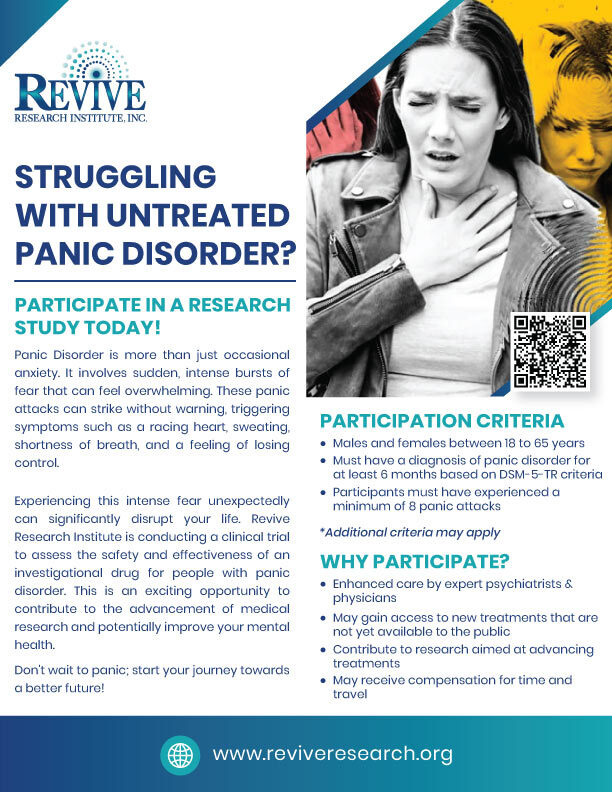Living in Overwhelming Fear of Panic Attacks?
Be Part of Panic Disorder Clinical Trial for a Calmer Tomorrow!
Panic Disorder is a significantly distressing anxiety disorder characterized by sudden and repeated attacks of intense fear. Panic attacks often include physical symptoms such as heart palpitations, sweating, trembling, and shortness of breath, which can mimic a heart attack. It’s estimated that around 2.7% of American adults experience panic disorder in any given year, with the condition being twice as common in women as in men.
Psychiatrists at Revive Research Institute are actively recruiting participants for Anxiety Clinical Trials, specifically focusing on panic attacks. You may qualify for anxiety studies near you if you:
- Are ≥18 years of age
- Have had a diagnosis of Panic Disorder for at least 6 months
- Have experienced a minimum of 8 panic attacks
*Additional criteria may apply
*Take part in clinical trials for anxiety in Illinois, near you at no cost to you or your private medical insurance. In addition, all participants receive free study-related care from psychiatrists, doctors and research team.
*Take part in this Borderline Personality Disorder research study at no cost to you or your private medical insurance. In addition, all participants get free study-related treatment from Doctors and Healthcare experts.
*If you are interested in participating in the Panic Disorder Clinical Trials in Illinois or would like more information, please fill out the form so we can determine if you qualify for the study and contact you. Note that this is an entirely voluntary decision.


